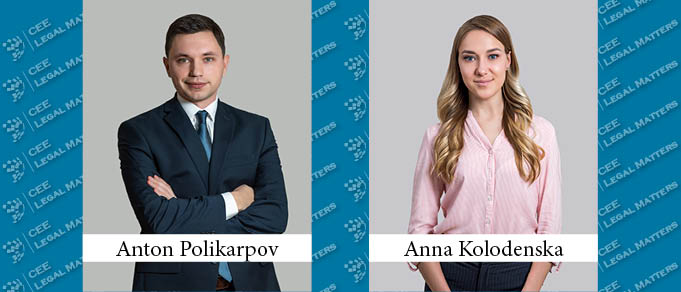Under the EU-Ukraine Association Agreement of June 27, 2014, Ukraine undertook to harmonize its legislation with EU law by 2023, including the regulatory framework for IP. Subsequently, in February 2020, the Parliament of Ukraine adopted a long-awaited set of draft IP protection laws (the “Draft Laws”), which are likely to have a significant impact on companies doing business in Ukraine, as well as on the measures which may be taken by businesses in connection with IP commercialization.
Changes in the Invention and Utility Model
Regulatory Framework
Under Ukrainian law, a utility model must meet two patentability criteria: novelty and industrial applicability. A substantive examination is not involved in the patenting process. This enables an applicant to get a patent at his/her own risk without needing verification by the Ukrainian Institute of Intellectual Property (“Ukrpatent”) within 8-10 months from the date of filing. The utility model patent provides its owner with the same rights as the owner of a patent for an invention.
At the moment, products (both devices and substances), processes, and new applications of existing products or processes can be patented as utility models. Under the Draft Laws, the list of utility models objects is limited only to devices. Basically, this makes it impossible to register, for example, active substances of pharmaceutical and agrochemical preparations, or the methods of their manufacture. After the adoption of the Draft Laws, such objects should be patented only as inventions. New forms of prior art drugs, as well as a new dosage or new use of known drugs, may not be patented as inventions. Such initiative is primarily aimed at combating so-called “evergreen patents.”
The Ukrainian legislator is also establishing an analogue of the Bolar provision, which allows pharmaceutical companies to apply to register a generic drug before the original drug’s patent expires.
While patents may still be invalidated in court, the Draft Laws also empower the Appeals Chamber of the Ministry for Development of Economy, Trade and Agriculture (the “Appeals Chamber”) to invalidate invention patents.
Changes to the Protection of Industrial Design and Trademarks
An industrial design may be protected as an unregistered design if it is brought to the awareness of the general public as prescribed by law. The term of this protection is three years from the date of its public notice in Ukraine. This is a long-awaited improvement for products from small and medium businesses with life cycles not exceeding 2-3 years.
The Draft Laws make it impossible to register marks which are identical or confusingly similar to trademarks used by another legal person in a foreign country if the application is submitted in bad faith (which includes those filed by representatives of a person without his/her permission).
Such changes in the current legislation facilitate an effective protection of brands which operate successfully in foreign markets but have not yet been launched in Ukraine. When entering the Ukrainian market, such right-holders often face situations in which their trademarks are already registered here. In this respect, they are often forced either to start expensive legal procedures or to buy a trademark from an unfair owner.
Under the Draft Laws, third parties may not only file oppositions regarding applications for trademarks, but also appeal final decisions of Ukrpatent in the Appeals Chamber without first referring to a court. At the same time, Ukraine does not recognize the concept of so-called post-grant oppositions in relation to trademarks. If an interested party fails to file an opposition in due course, he/she may invalidate the trademark certificate only in court. As a result, services for tracking submitted applications are becoming increasingly important.
One more expected provision is the opportunity to demand a fine of 10 to 50,000 minimum wages (from USD 1,750 to USD 8.7 million) in case of a certificate invalidation and the violation of third parties’ rights being established by the court.
Although the results of all of the above are yet to be seen, these legislative improvements demonstrate Ukraine’s readiness to follow the European standards of IP protection and will definitely benefit fair businesses.
By Anton Polikarpov, Head of IP, and Anna Kolodenska, Associate, Avellum
This Article was originally published in Issue 7.5 of the CEE Legal Matters Magazine. If you would like to receive a hard copy of the magazine, you can subscribe here.
